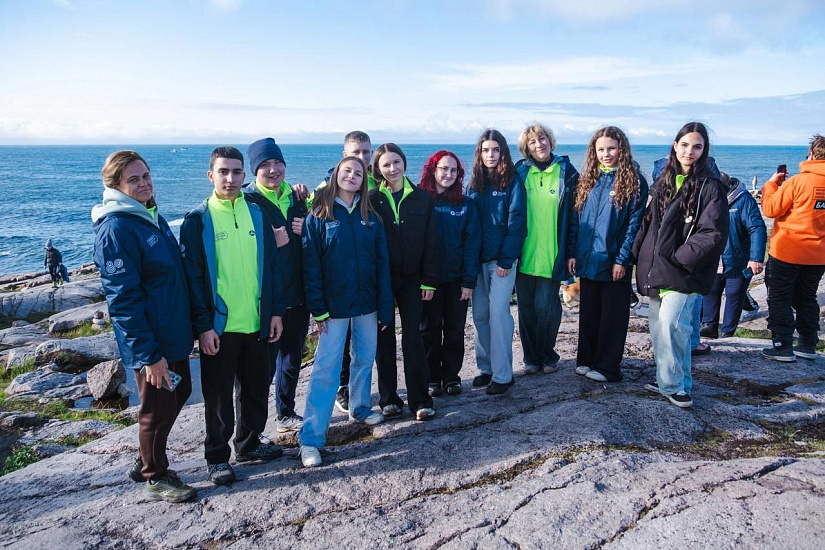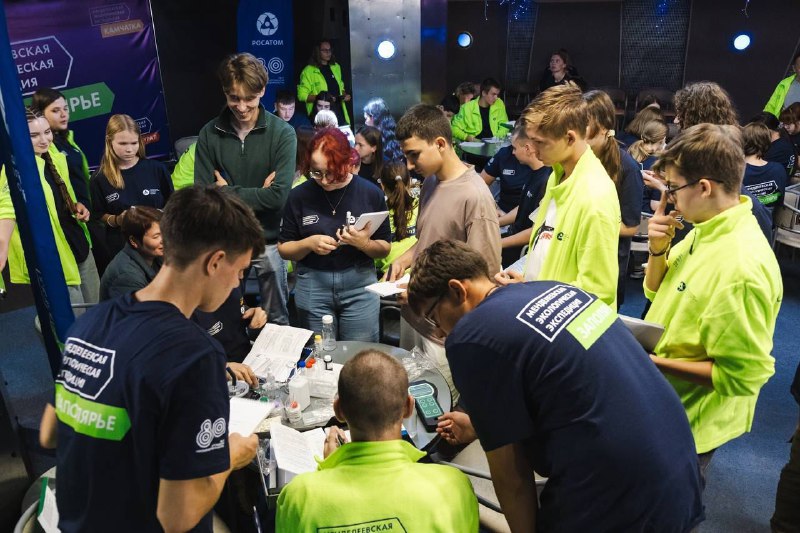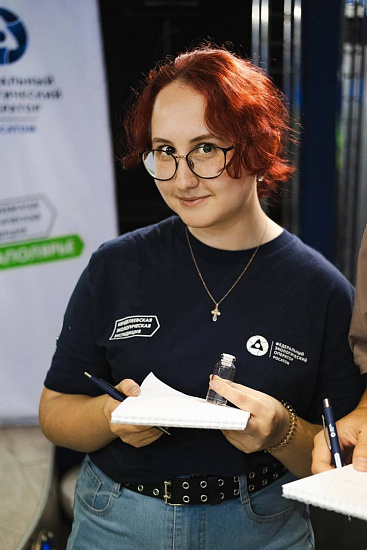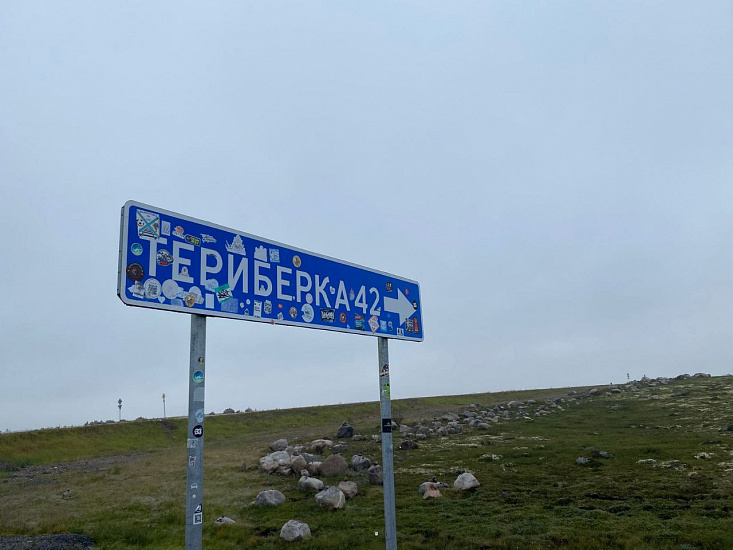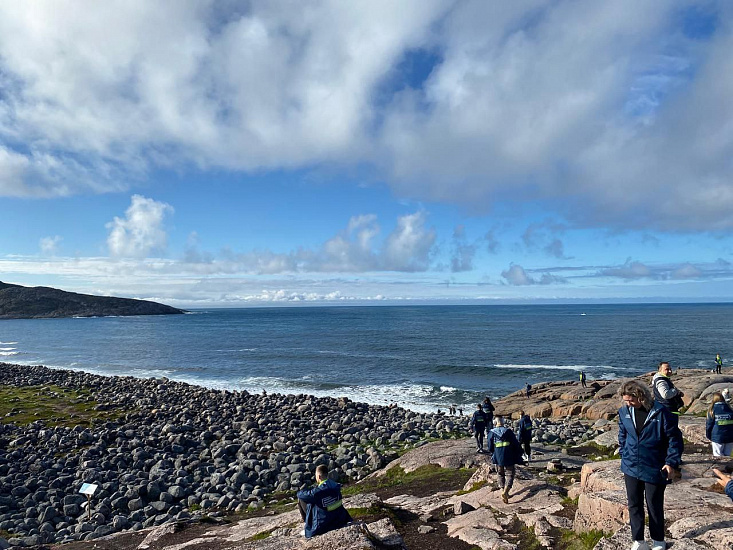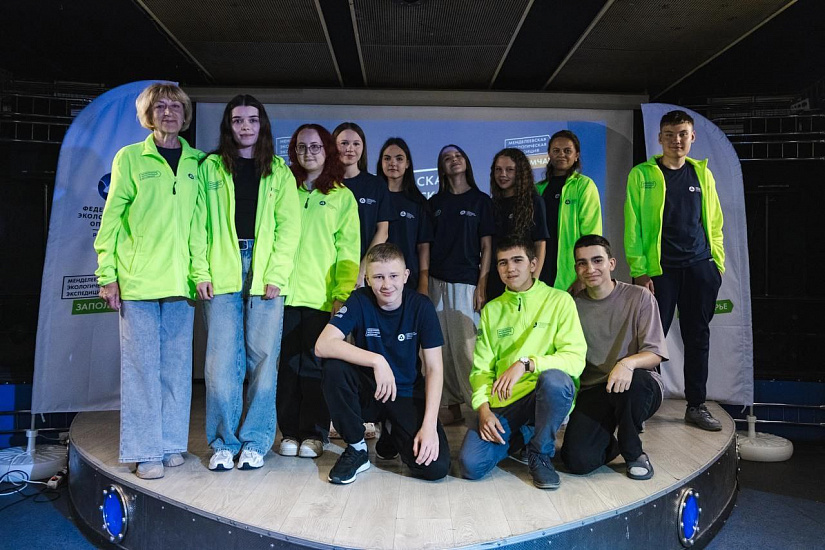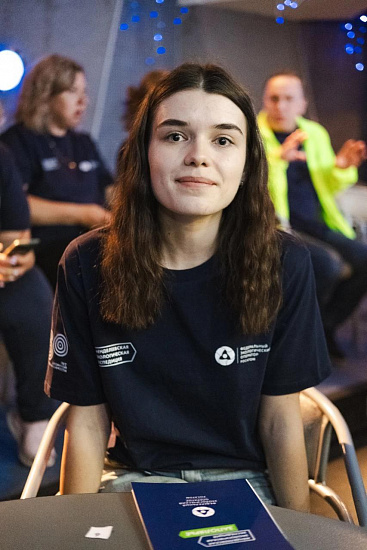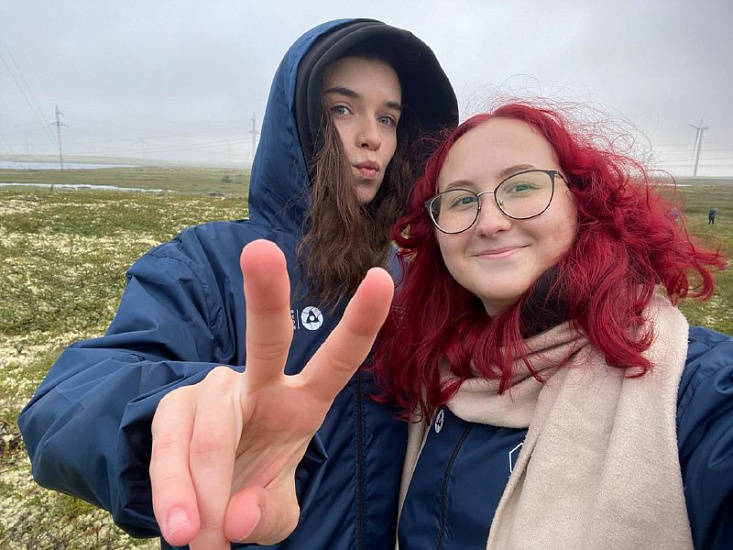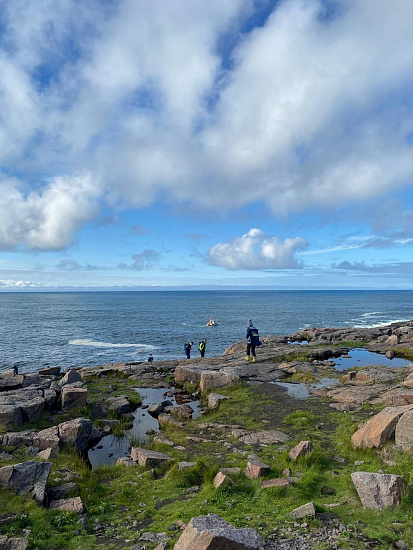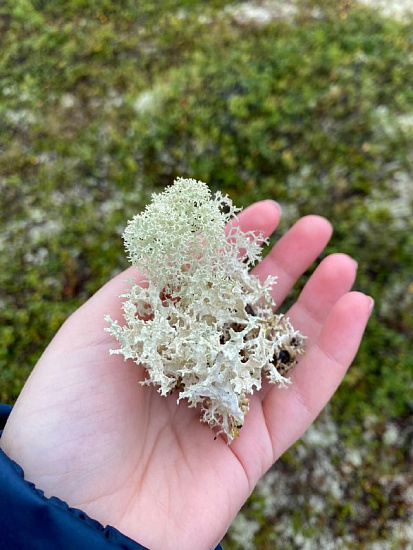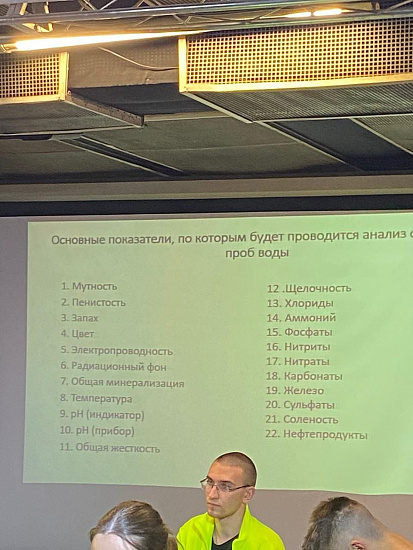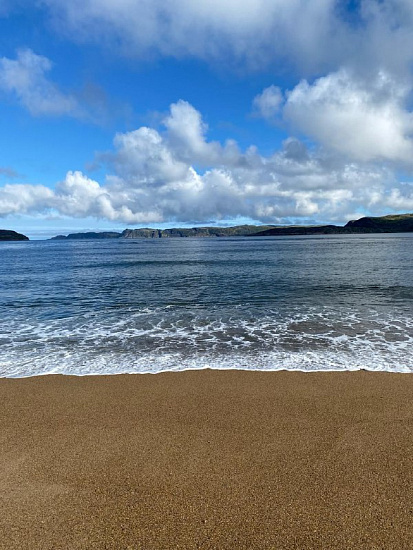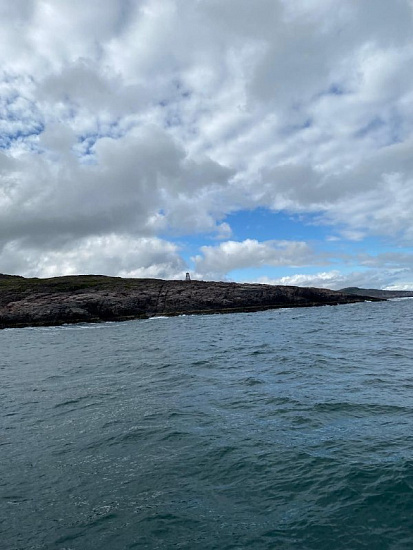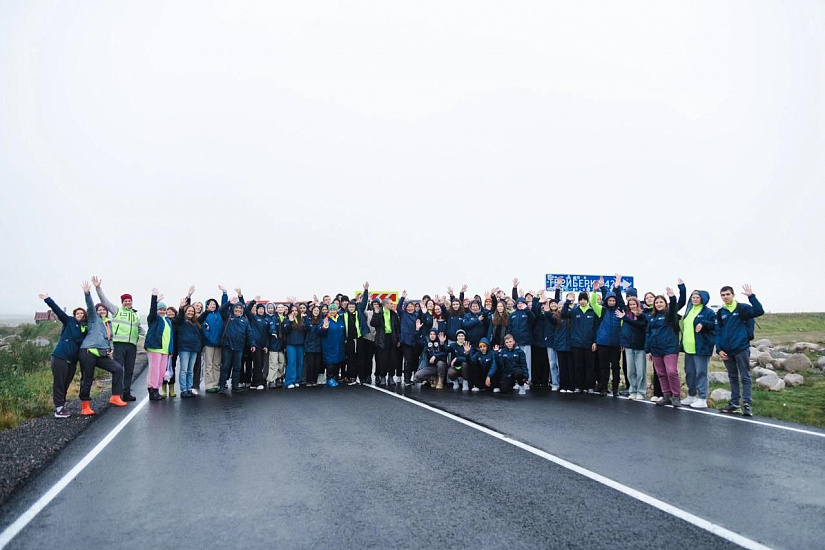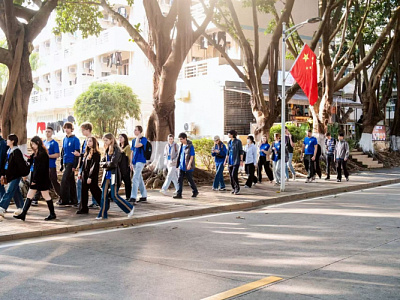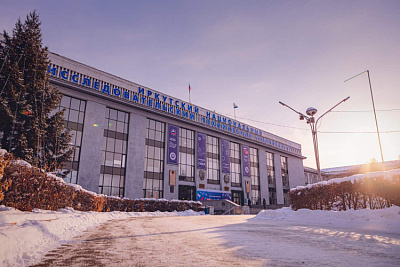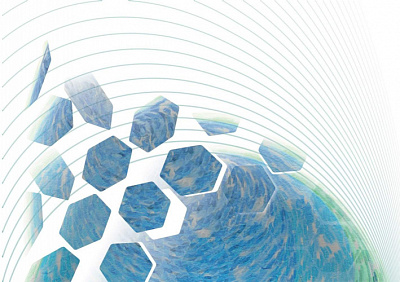INRTU Students Investigated Arctic Ice Quality during Mendeleev Expedition
Students of the School of Subsurface Resource Management of INRTU Maria Likhovid and Karina Shayakhmetova have returned fr om the Mendeleev Ecological Expedition. They investigated the quality of ice in the Arctic, explored the nature of the Kola Peninsula, and conducted quests for children. The trip, led by State Atomic Energy Corporation Rosatom, took place from August 20 to 26 in Murmansk region.
The Mendeleev Expedition is supervised by the network of Information Centers on Nuclear Energy with the support of the Federal Environmental Operator and the federal scientific and educational consortium “Advanced EcoTechnologies” (part of Rosatom). The project brought together students and schoolchildren from Udmurt Republic and its capital city Izhevsk, Moscow, Kirov, Saratov, Kurgan, and Irkutsk regions.
The students from the Department of Industrial Ecology and Life Safety, Maria Likhovid and Karina Shayakhmetova, went to the Polar region. The expedition was a reward for their mentoring work: previously, they had mentored students of the “Mendeleev Classes” at Lyceum No. 1 in Usolye-Sibirskoye for almost a year. The Irkutsk students helped the children work on projects, including creating chat-bots for environmental purposes and studying water quality. Seven best lyceum students also received a trip to Murmansk.
As Karina Shayakhmetova reported, the expedition participants were divided into teams based on their region. The groups were to study samples from fresh and salt water bodies collected by local polar explorers. The team from the Irkutsk region got samples of melted ice from the Arctic Ocean. The samples were analyzed for 22 indicators in a mobile laboratory.

“We conducted qualitative and quantitative analysis, checked the radiation background, turbidity, content of iron, phosphates and other substances. It is noteworthy that our samples were free of impurities. One of the groups studied water delivered from the village of Teriberka. These samples had increased iron content, probably because many old ships have been towed to the local coast,” Karina said.
The INRTU students also helped the expedition organizers conduct ecological and local history quests for schoolchildren around Murmansk. For example, Karina Shayakhmetova coordinated a game on waste sorting and recycling.
Furthermore, the INRTU students visited the Kola Nuclear Power Plant in the town of Polyarnye Zori and the icebreaker “Ural” at the Atomflot base. The Irkutsk students remembered the excursion to Teriberka, from wh ere the participants went on a boat trip on the Barents Sea. According to them, the deck of the ship offered a breathtaking view of the northern scenery, adorned with snow-white reindeer moss.
Upon returning to Irkutsk, the INRTU students considered doing their pre-diploma internship or finding employment at enterprises in the Murmansk region. Maria Likhovid shared her impressions and plans for the future.

“Following the expedition, we gave a presentation to representatives of Rosatom. They advised us to continue thematic research by speaking at conferences in our home towns. For example, I can apply the expedition experience while preparing my diploma thesis dedicated to studying water quality. Thanks to the Mendeleev Expedition, I have become more open and realized that I can be even more useful to the younger generation. First of all, this concerns mentoring, organizing events for children of all ages.
Murmansk and its surrounding nature have definitely touched my soul. I have heard this expression: if you ever visit the Polar region, you will definitely want to return there again. I agree with these words,” Maria Likhovid shared.
The youth from the Irkutsk region were supervised on the trip by Svetlana Bochkareva, Associate Professor of the Department of Chemistry and Biotechnology named after V.V. Tuturina at INRTU, and Yelena Rozhkova, a teacher from the Lyceum No. 1 in Usolye-Sibirskoye. Previously, Svetlana Bochkareva taught advanced chemistry lessons to the lyceum students.
It should be recalled that a year ago, in 2024, the expedition participants explored ecosystems in Kamchatka.
